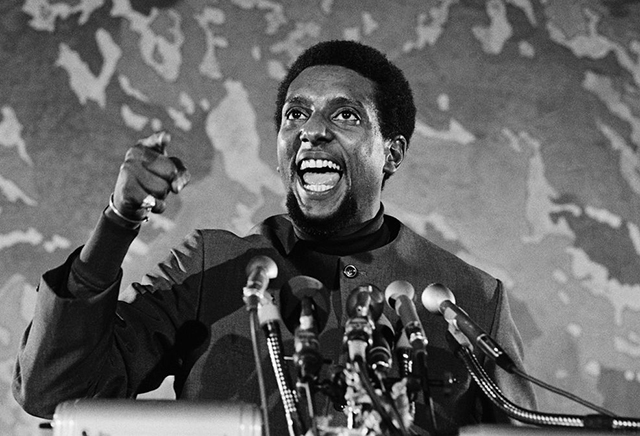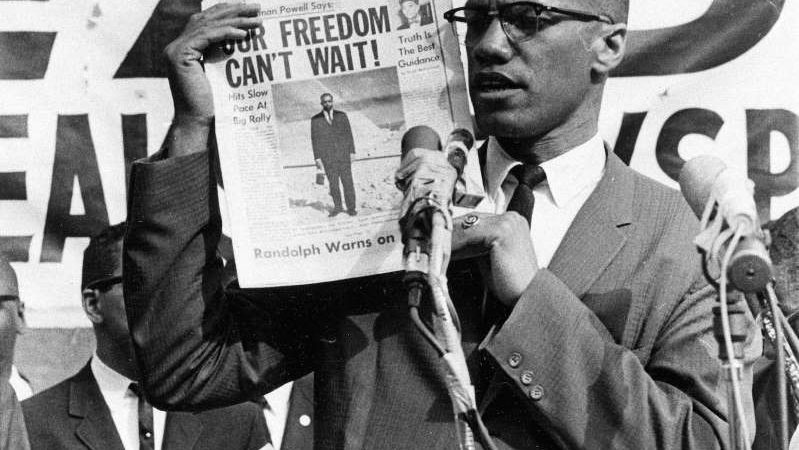Congress shall make no law respecting an establishment of religion, or prohibiting the free exercise thereof; or abridging the freedom of speech, or of the press; or the right of the people peaceably to assemble, and to petition the Government for a redress of grievances.
The First Amendment to the Constitution allows for the protection of speech, albeit with a few limitations regarding sedition, child pornography, political campaigns, truth in advertising, and speech that incites imminent danger or harm. While those limitations can be large in number, America has perhaps the most liberal Freedom of Speech statutes of any industrialized nation. A few of those principles will come under fire next week in a coming Supreme Court Case involving the Westboro Baptist Church, and the family of deceased soldier Lance Cpl. Matthew A. Snyder.
Snyder lost his life in Iraq four years ago. His funeral was picketed by members of the Westboro Baptist Church, led by Reverend Fred Phelps, Sr. The picketers carried signs with hateful language to the tune of “Thank God for Dead Soldiers,” “God Hates Fags” and “You’re Going to Hell.” Westboro has a history of picketing the funerals of dead soldiers and their religion-related stance is that the tolerance of gays in the military is cause for God’s righteous wrath.
Snyder’s father, Albert, brought a lawsuit against the Westboro, with Phelps named as a party, claiming their protest caused him to become physically sick. Also claimed in the suit was invasion of privacy and intentional infliction of emotional distress, citing the aggravation of his diabetes upon reading an online poem the church published entitled “The Burden of Marine Lance Cpl. Matthew A. Snyder.” Snyder won the initial suit to the tune of over 10 million dollars in damages. That ruling was overturned by appeal and Snyder was even ordered to pay roughly $16,000 in Phelp’s legal fees.
The case now lies in the Supreme Court next week and at the heart of the matter is the protection of one of the most powerful rights we have as Americans. Surprisingly, many members of Congress stand poised to disregard this right. 42 Senators, including Majority leader Harry Reid and minority leader Mitch McConnell across party lines have contributed to a friend of the court letter attempting to persuade the Supreme Court to overturn the ruling of the appeal and reinstate the original verdict. 48 State Attorneys General have also submitted a brief urging the Court to reconsider the appeal.
Morally, it would be easy to see why they would do so. You can’t get much lower than picketing the funerals of people that have given their lives for this country. Westboro’s base tactics and cowardice would seem like something no one would want to protect and certainly an issue that a Congressman could look good opposing. But in attempting to move the Court against the rights of Westboro, they are derelict in their duty to protect the Constitution of the United States.
The 4th Circuit of the US Court of Appeals ruled that the protests and the poem did not refer to or purport to be actual facts regarding the deceased Snyder and were closer in construction to “rhetorical hyperbole.” The signs themselves were similarly ruled to have no material facts about Snyder but were extensions of the protestors’ beliefs.
Snyder says the protesters were 30 feet away from the funeral. The protesters say they were out of sight and out of aura proximity, standing, according to Shirley Phelps-Roper, the daughter of Phelps, and also a named defendant in the case. Phelps-Roper contends, “We were out of sight and out of sound more than 1,100 feet from that building,” in a recent interview with AOL.
Regardless of that distance, it would be very difficult to prove under existing statues that this group, known to protest funerals with regularity showed up to intentionally cause harm or injury to Mr. Snyder. While poor taste is certainly at play here, violation of the law is not. The Court of Appeals correctly overturned the ruling of a jury probably moved by the emotion of such a case. That’s the beauty of the Court system when it works.
Looming larger than this particular case however, is the ease and willingness of the architects of law to bypass that law based on national tenor with no respect for the letter of the law’s intent. Which Congressman wouldn’t look good shutting down a hate group? Not very many. But once that precedent is created to find special instances where our rights are not protected, how malleable do those rights become? What speech or additional right contained in the First Amendment will come under assault next?
The First Amendment just recently withstood a xenophobic left hook from Quran burners. Thankfully cooler heads prevailed and that spectacle was avoided. This case however stands ready to provide legal precedent, and serve as that first snowball of the avalanche on our rights as Americans. Our Senators stand poised to provide the extra push. Let’s hope that the Supreme Court has steeled itself against such an appeal and serves its duty as the final check and balance of the American Experiment. Unconscionable and unconstitutional are two different things.
*Additional legal research in the preparation of this article was done with the aid of Epic.org.
Follow Us on Twitter @ http://twitter.com/planetill
Follow Bill Starlin on Twitter @ http://twitter.com/Bill_Starlin
Join Us on the Planet Ill Facebook Group for more discussion
Follow us on Networked Blogs






2 thoughts on “Snyder V. Phelps: First Amendment Under Siege”